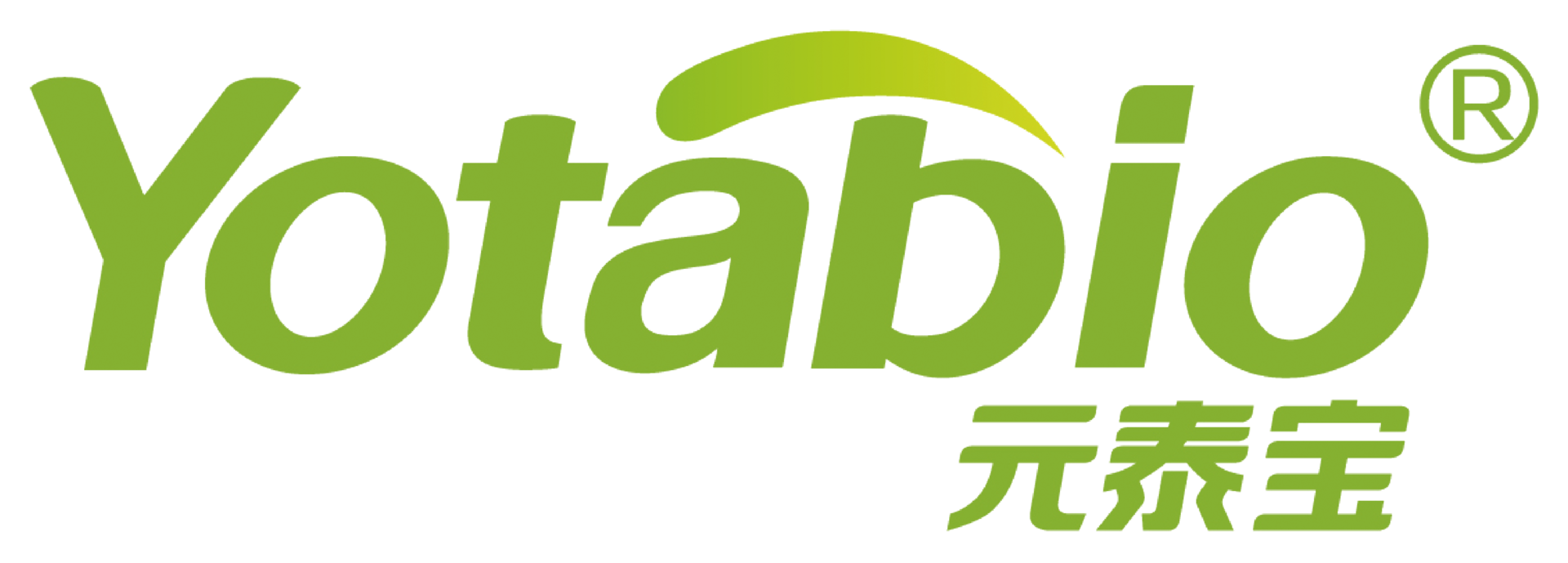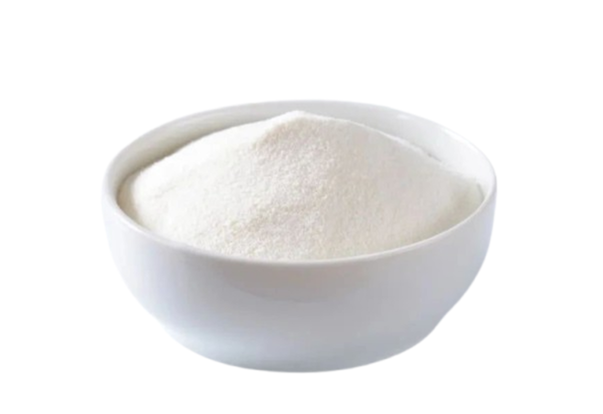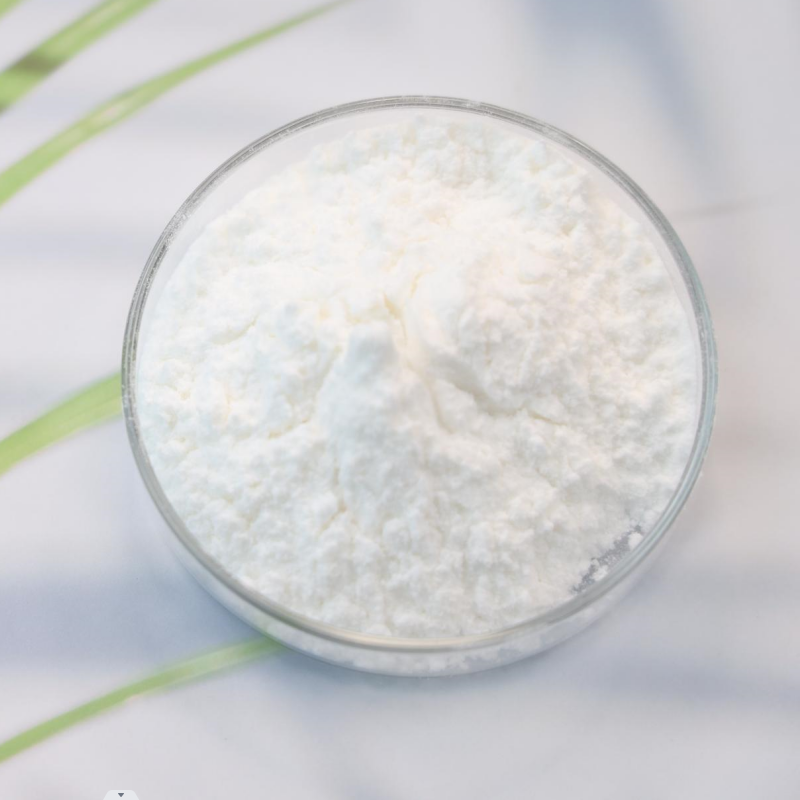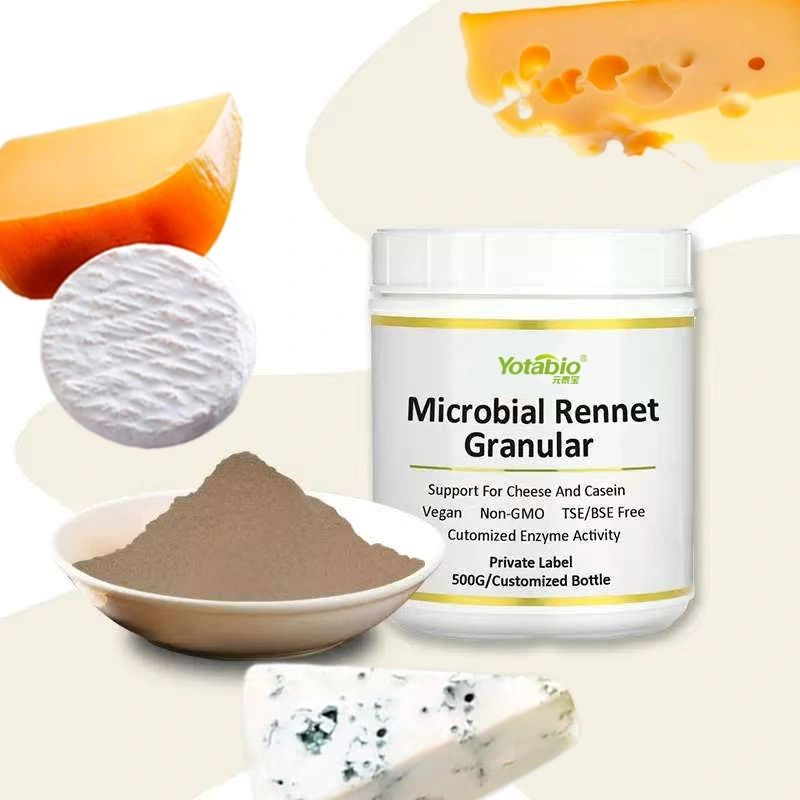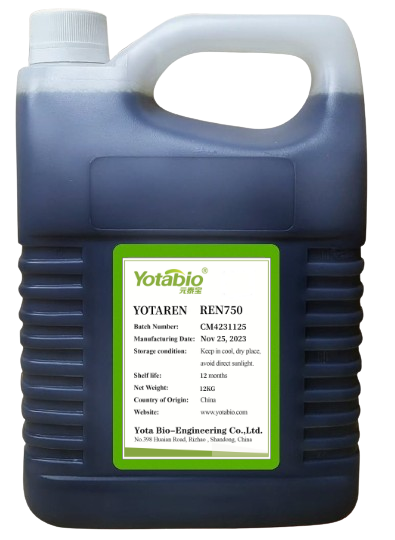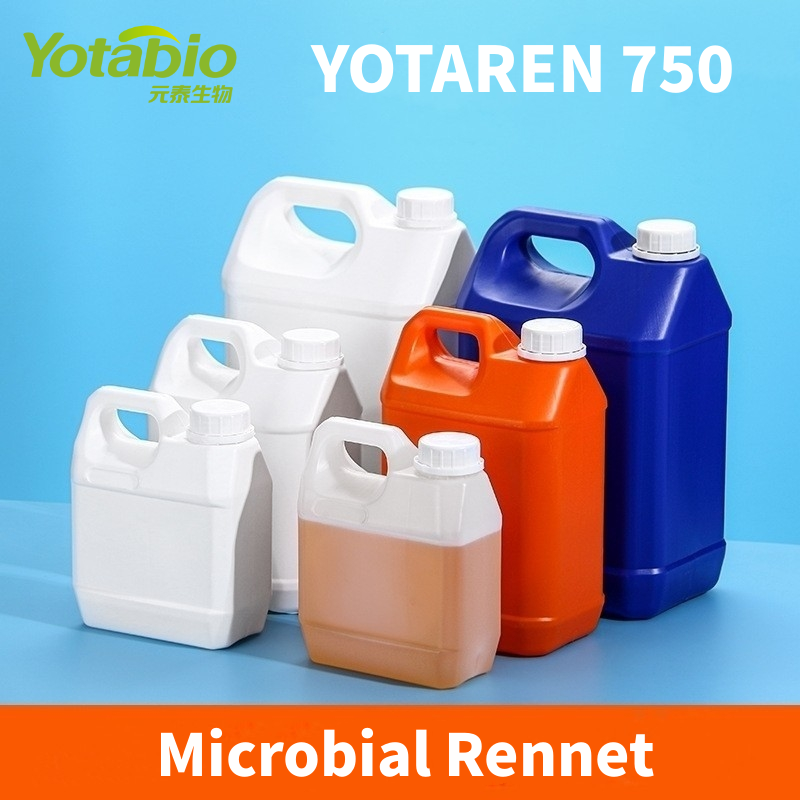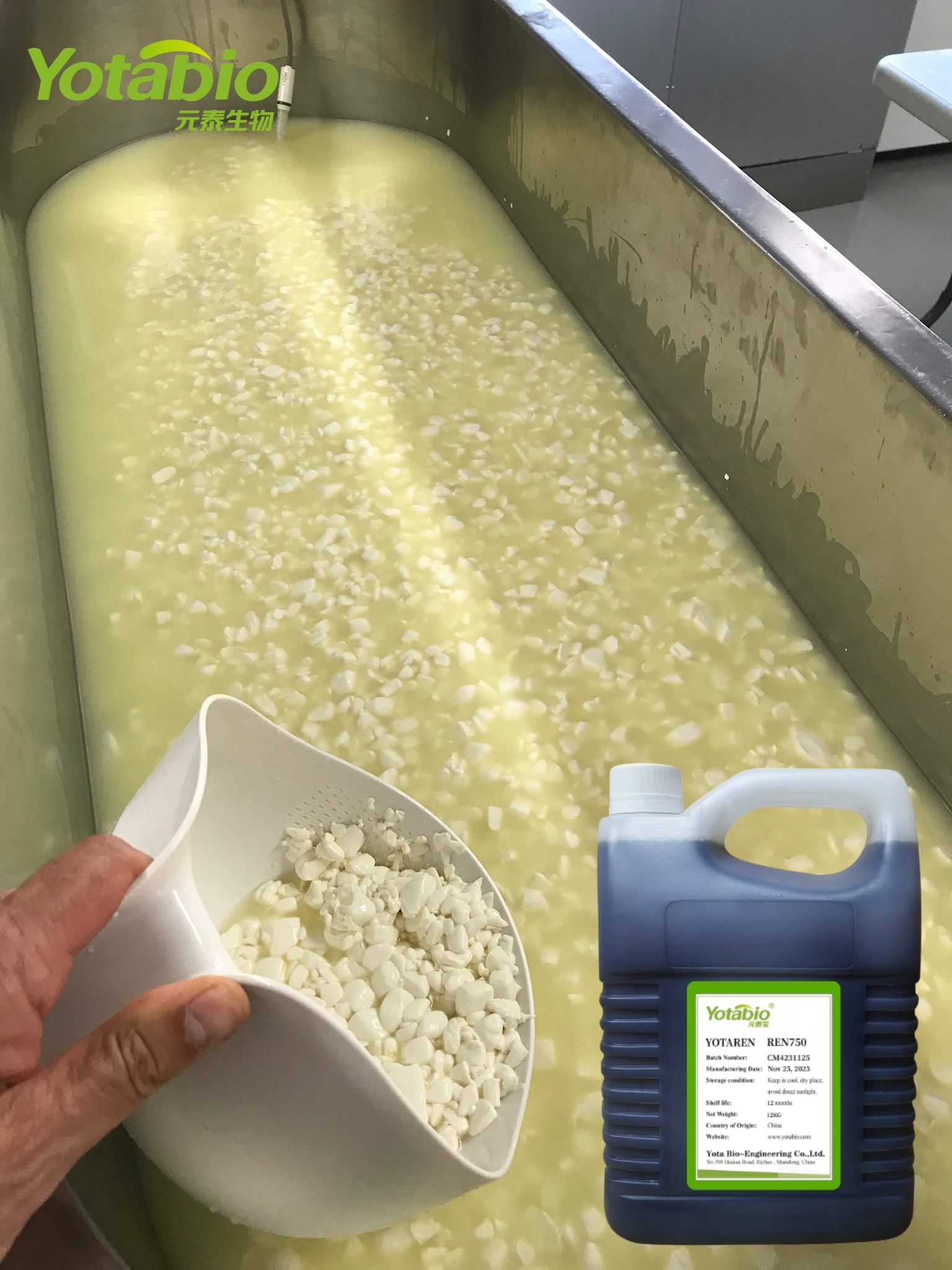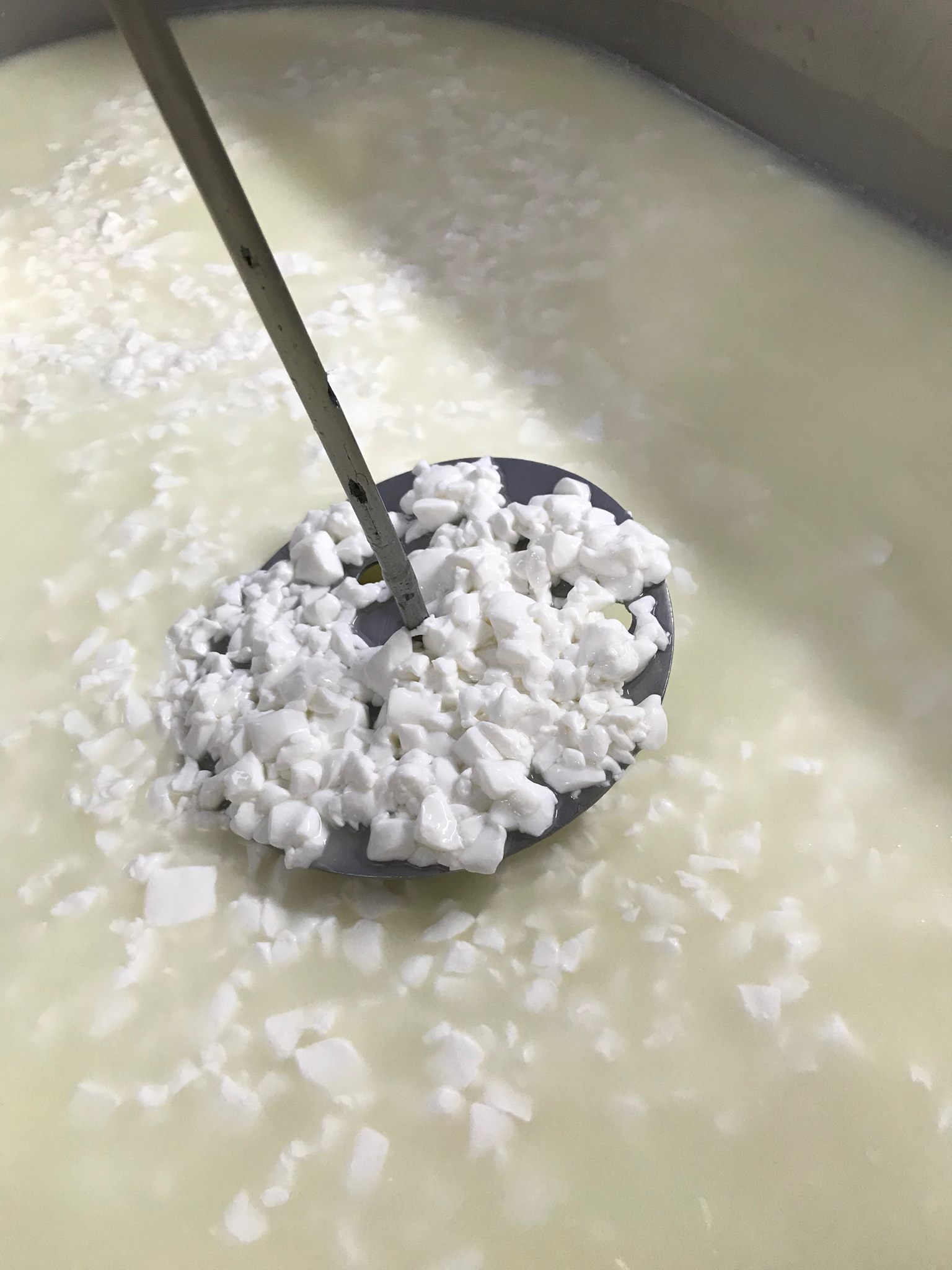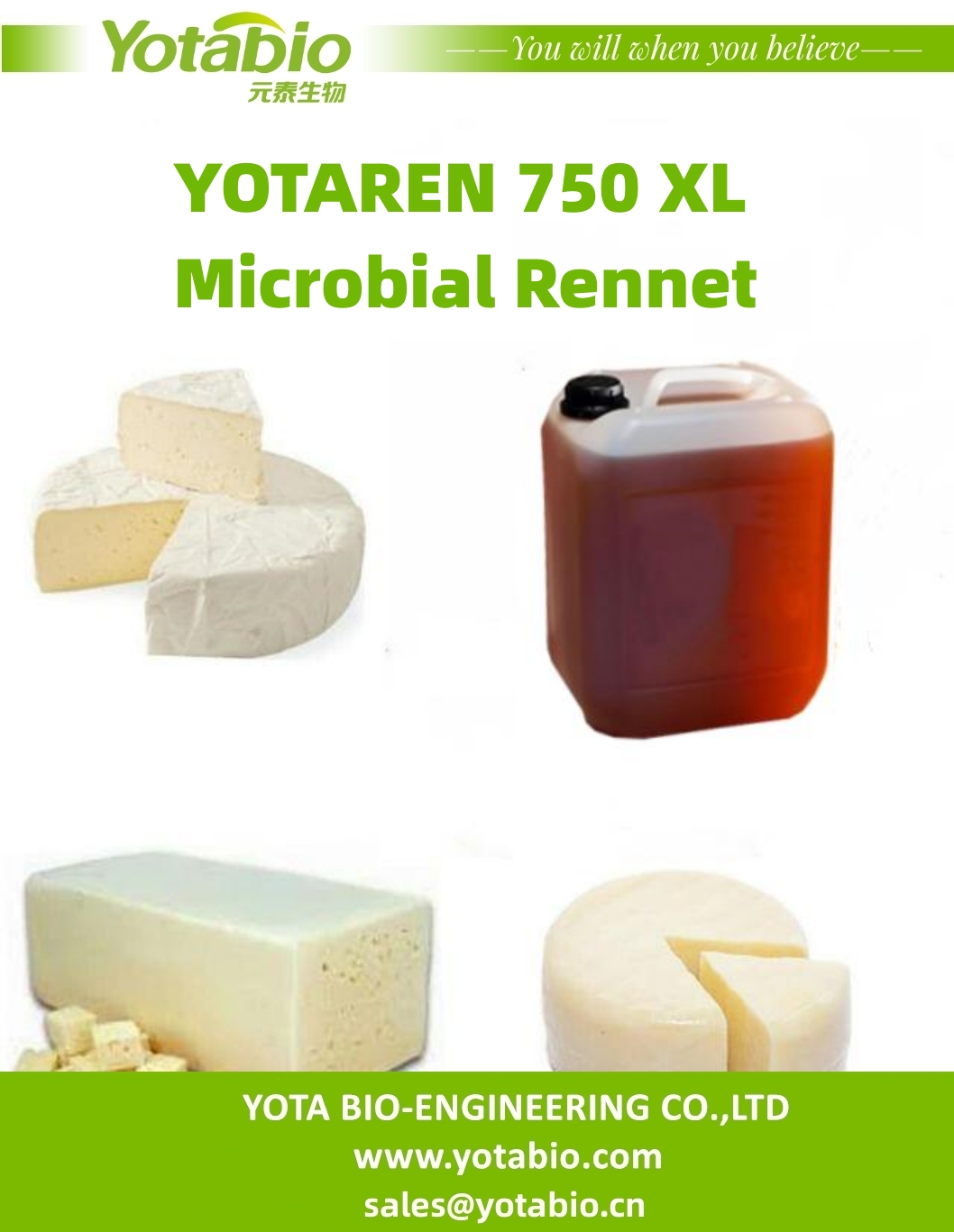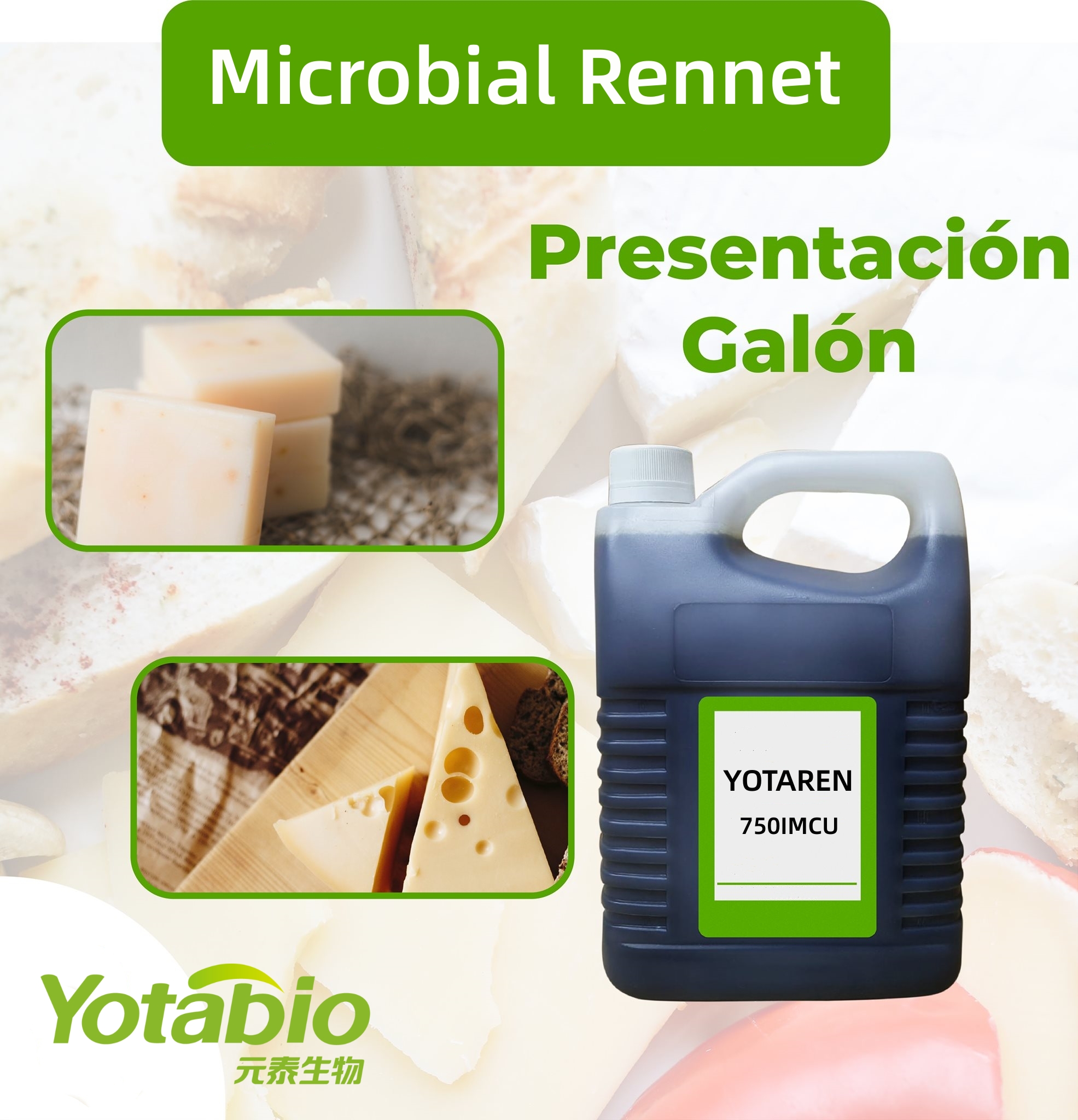
Contact me:
Basic Info.
Product Description
Microbial rennet, also known as microbial coagulant or microbial enzyme, is a type of rennet used in the cheese-making process. It is derived from Rhizomucor miehei. This enzyme plays a crucial role in coagulating milk, causing it to separate into curds and whey.
Microbial rennet is widely used in the food industry as a vegetarian alternative to animal-based rennet, which is traditionally sourced from the stomach lining of young calves. The use of microbial rennet allows cheese producers to create a variety of cheese types while meeting the dietary preferences and restrictions of vegetarians.

YOTAREN 750 XL Description
Microbial rennet YOTAREN 750 XL is produced by biotechnological fermentation with Rhizomucor miehei. As a milk-clotting enzyme, it performs as natural rennet and increases efficiency in industrial cheese production. Due to its vegetable origin and absent of any animal content, there is no religious objection to the product. Microbial rennet does not contain any Genetically Modified Organism (GMO) in its production

Composition
Chymosin Specifications
GMO information
The product isn't "derived" or "obtained" by GMOs in accordance with Regulation (EC) No 1829/2003 of the European Parliament and of the Council of 22 September 2003 on genetically modified food and feed. ** Regulation (EC) No 1830/2003 of the European Parliament and of the Council of 22 September 2003 concerning the traceability and labelling of genetically modified organisms and the traceability of food and feed products produced from genetically modified organisms and amending Directive 2001/18/EC.
Storage conditions: Store unopened under 25°C in dry conditions, away from direct sunlight.
Expiry date: 1 year under storage conditions.The shelf life is limited to 6 months after opening, provided the product is maintained according to the recommended storage conditions.
Enzymatic composition: 100% rennet
Packaging: available in Food plastic barrel, 25L per barrel IBC container, 1000L per container.


Applications
Microbial rennet YOTAREN 750 XL made from Rhizomucor miehei is widely used as a coagulant in cheese-making, particularly by producers of vegetarian and kosher cheeses who wish to avoid using animal-based rennet. The use of microbial rennet offers several benefits, such as easier standardization of cheese quality, faster coagulation, increased yield, and the ability to produce cheese with consistent texture and flavor. Some specific applications of microbial rennet made from Rhizomucor miehei in cheese-making include:
Cheddar cheese: In cheddar cheese production, microbial rennet is typically used in combination with other coagulation agents, such as starter cultures and calcium chloride, to achieve the desired flavor, texture, and appearance characteristics.
Mozzarella cheese: Mozzarella cheese production typically requires the use of a combination of microbial rennet and other acids, such as citric acid, to achieve curd formation, firmness, and stretchability.
Swiss cheese: Swiss cheese production involves using microbial rennet in combination with Lactobacillus helveticus bacteria to produce the characteristic holes, or "eyes," in the cheese.
Specialty cheeses: Microbial rennet made from Rhizomucor miehei can also be used in the production of specialty cheeses, such as goat cheese, feta cheese, and queso blanco. In these cases, the use of microbial rennet may be preferred over animal-based rennet due to dietary or cultural restrictions.
Blue cheese: Blue cheeses, such as Roquefort or Gorgonzola, often use microbial rennet along with specific molds, such as Penicillium roqueforti, to create the characteristic blue veins and sharp flavors.
Paneer: Paneer is a type of Indian cheese made from milk, typically coagulated using an acid or microbial rennet. Microbial rennet can be used to achieve a firmer texture and enhance the cheese's melting properties.
Camembert and Brie: These soft and creamy cheeses are commonly produced using microbial rennet in addition to specific strains of Penicillium mold to develop the characteristic bloomy rind and smooth texture.
Parmesan and Grana Padano: Hard cheeses like Parmesan and Grana Padano require longer aging periods and have specific texture and flavor profiles. Microbial rennet can be used to promote efficient curd formation and help achieve the desired characteristics during the aging process.
Vegan and vegetarian cheeses: Microbial rennet made from Rhizomucor miehei is especially popular in the production of vegan and vegetarian cheeses, as it provides a cruelty-free alternative to animal-based rennet. It allows manufacturers to create a variety of plant-based cheeses that closely resemble the taste and texture of traditional dairy-based cheeses.

To use microbial rennet made from Rhizomucor miehei, here are some general directions:
Start with fresh milk: Use high-quality, pasteurized milk for cheese making. The type and fat content of the milk will depend on the specific cheese you want to make.
Warm the milk: Heat the milk to the appropriate temperature based on the cheese recipe you are following. This can vary depending on the cheese type but is usually around 32-38°C (90-100°F). Stir the milk gently while heating to prevent scorching.
Add rennet: Dilute the desired amount of microbial rennet made from Rhizomucor miehei in cool, non-chlorinated water or milk following the manufacturer's instructions. The dilution ratio may vary, so it's essential to refer to the specific product guidelines.
Incorporate rennet into milk: Slowly add the diluted rennet to the warm milk, stirring gently to ensure even distribution. Stir in an up-and-down motion rather than a circular one to prevent excessive breaking of curds.
Allow coagulation: After adding the rennet, let the milk sit undisturbed for a specified time period, typically 30-60 minutes, depending on the cheese type and recipe. During this time, the rennet will coagulate the milk protein, forming a solid curd.
Check for a clean break: To determine if the coagulation is complete, gently insert a knife or a clean finger into the curd and make a clean cut. If it forms a clean break with whey separating, it is ready for the next step. If not, allow more time for coagulation.
Cut the curd: Cut the curd into small, uniform pieces with a knife or a curd cutter. The size and shape of the curds depend on the desired cheese texture. Again, the specific instructions will be provided in the cheese recipe you're following.
Stir and cook curds: Slowly heat the curds while stirring gently. The temperature and duration of this step will vary depending on the cheese recipe. Stirring helps expel whey and achieve the desired moisture content.
Drain and press: Once the curds have reached the desired texture and moisture, transfer them into cheesecloth-lined molds or a colander. Let the whey drain off for a specified period, and then apply appropriate pressure to press the curds together. The duration and pressure level depend on the cheese type.
Age and ripen: After pressing, the cheese typically undergoes an aging process. The aging time varies depending on the cheese type and desired flavor characteristics. Follow the specific recipe instructions for the aging conditions, such as temperature and humidity.


KEY BENEFITS OF YOTAREN 750:
Vegetarian and vegan-friendly: Microbial rennet is a suitable alternative for those who follow a vegetarian or vegan lifestyle, as it is derived from a microbial source rather than animal-derived rennet.
Consistent production: Unlike animal rennet, which can vary in quality and availability depending on factors like season and animal diet, microbial rennet can be produced consistently throughout the year. This ensures a stable and reliable enzyme source for cheese production.
Cost-effective: Microbial rennet is often more cost-effective compared to animal rennet, making it a preferred choice for commercial cheese producers.
Enhanced flavor consistency: The specific proteolytic enzyme chymosin produced by Rhizomucor miehei can curdle milk and aid in the development of desirable flavors and textures in cheese. Using microbial rennet can result in more consistent flavor profiles in the final product.
Improved yield and texture: Microbial rennet can help achieve a higher yield of cheese due to its ability to curdle milk effectively. It can also contribute to a desired texture, especially in semi-soft and hard cheeses, resulting in desirable mouthfeel and overall product quality.
Reduced maturation time: Microbial rennet can potentially shorten the cheese maturation time compared to traditional rennet. This can lead to more efficient production processes and faster turnaround time for cheese makers.
Allergen-friendly: Using microbial rennet eliminates the risk of allergenic reactions that may occur with animal rennet, especially for individuals with allergies to animal proteins.
Sustainable and ethical: By using microbial rennet, cheese makers can reduce their reliance on animal resources, contributing to a more sustainable and ethical approach to cheese production.


Enzymes and cultures play a key role in ensuring that dairy products have the best possible flavor and appearance, while staying fresh for longer. Yotabio can help you plan your food ingredient purchases through natural solutions. We focus on the production of food preservatives and enzymes.
YOTA BIO-ENGINEERING CO., LTD (YOTABIO) is located at 398 Huan'an Road, RETDA, Rizhao, P. R. China, a beautiful coastal city in Shandong Province.
Our production base now covers about 38,000 square metres and there are 150 staff members working to produce high quality bio-food additives such as Nisin, Natamycin, Polylysine and Transglutaminase (TG), Lysozyme, Rennet, Chymosin, Lactase and Lipse for the dairy industry since 2016, and we also supply vegan food ingredients such as Methylcellulose. Thanks to our diligent workers, YOTABIO is able to provide stable with quality products to our customers all over the world.
YOTABIO is committed to becoming a leading manufacturer of bio-food additives in the food industry in China, by having a strong innovation in the R&D area, the well-designed & established manufacturing facilities and a responsive & creative customer support system.
Deeply rooted in YOTABIO's corporate culture, innovation and expertise are at the core of new developments. YOTABIO is constantly innovating and improving its range of food ingredients.
The innovation team at YOTABIO brings together the necessary energy, scientific and technical skills to serve a common goal: to continuously provide the best products and service to our customers.
Using bio-based materials and state-of-the-art biotechnology, we can help you meet the various consumer demands for food preservation and processing. We can also help you reduce costs and improve food safety by maintaining freshness & quality for the intended shelf life of the food.


YotaRen-750-XL - Microbial Rennet.pdf
